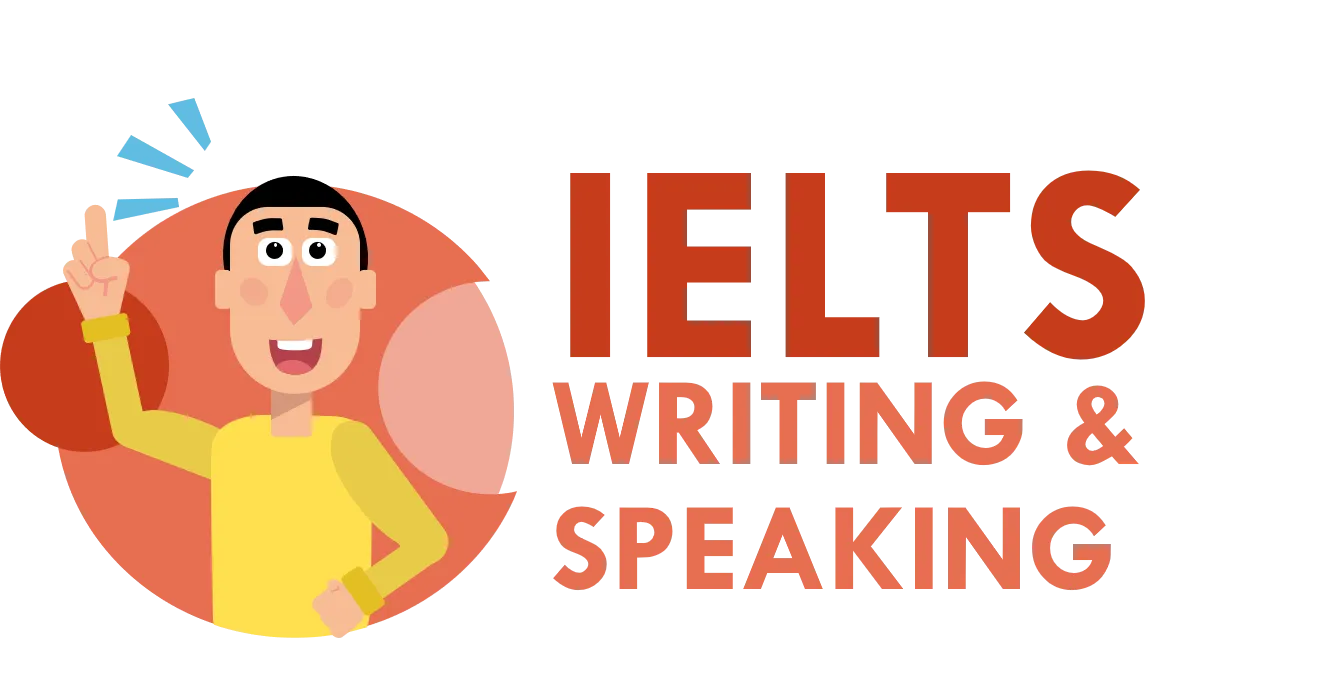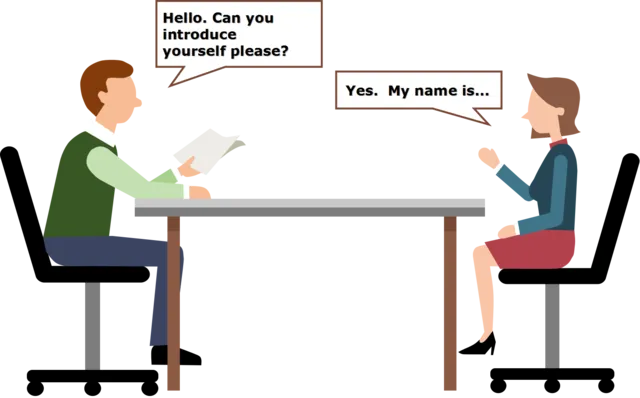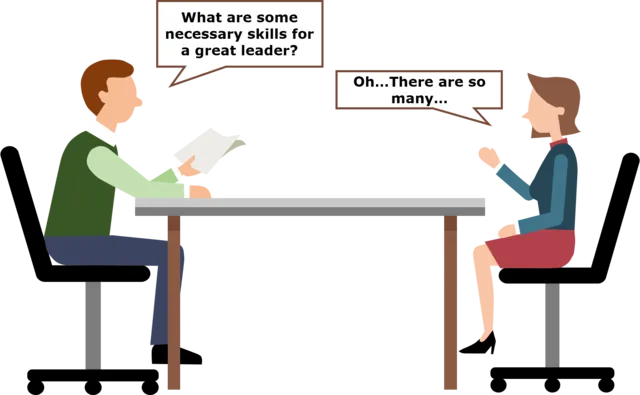Duration
1 to 1
Topics
Parts
Scoring
IELTS Speaking Overview
The exam is an informal conversation 1-to-1 with an examiner. The whole exam takes about 15 minutes all together. The exam is divided in 3 parts as follows:
- Part 1 - Introduction and general talk about you.
- Lasting 4-5 minutes.
- Part 2 - A topic to talk about for 2 minutes.
- Lasting 3-4 minutes. (You have 1 minute to prepare.)
- Part 3 - Follow up questions about the same topic but more difficult.
- Lasting 6-7 minutes.
Important notes
- You can ask the examiner for help. Ask him to explain a word or to give you an example.
- You will be asked to show your ID or passport to the examiner.
- You should have confident body language.
- You cannot change a question.
- You will be recorded.
IELTS Speaking Part 1
Part 1 is about you. The examiner will ask you to introduce yourself and then ask you many different questions about your life. You can see some examples of questions here to the right. The examiner will change the topic a few times and the point of the whole section is to answer more questions more quickly than the other parts.
DO's:
Answer every question. You cannot change the questions.
Give shorter (not too short) answers. Try to practice answering Part 1 questions for about 15-20 seconds.
Give examples (What?) and reasons (Why?) for your answer. Give names of things you like or dislike (food, places, weather, etc.)
Add how you feel about the things you talk about. Say that you love, hate, enjoy, feel bored of, feel anxious about, etc.
DON'Ts:
Don't speak too long. The examiner will interrupt you. The point is for him to ask you many questions in this part.
Don't stay quiet or silent. You can ask the examiner to help you with an example or to explain you a question.
PART 1 TOPICS
Work or Studies - What do you work/study?, Why did you choose it?, Do you like your job/study?, Is it interesting?, etc.
TV Programs - What is your favorite one?, How often do you watch TV?, Why do you like it?, etc.
Hobbies - What are your hobbies?, When do you do them?, Why do you like them?, etc.
Sports - What sports do you like?, Do you do them outdoors?, etc.
Food - What is your favorite local food?, Have you eaten foreign food?, Is there a type of food that you dislike?, etc.
Clothes - What colors of clothes do you like to wear?, Is fashion important for you?, How often do you buy clothes?, etc.
Holidays - Does your country have enough holidays?, What is your favorite holiday?, Do you travel during the holidays?, etc.
Weekends - What do you usually do on the weekends?, What do other people usually do?, etc.
Your country - What is a famous place in your country?, Which part of your country do you live in?, etc.
Hometown - What do you like about your hometown?, What do you dislike about it?, Are you going to live in your hometown in the future?, etc.
And many more.
IELTS Speaking Part 2
When Part 1 ends, Part 2 will begin. You will be given a piece of paper with a topic written on it. This topic will continue in Part 3 so pay attention on it. You cannot change the topic. In this part you will need to give a short speech for 2 minutes. You will have 1 minute to take notes and prepare for speaking. Make sure you prepare in advance, because the topics are many and different. You may need to talk about a person, a place you've visited, a mistake you've made, a movie you've seen and so on. You can see some examples of questions here on the right.
DO's:
Speak the whole time you are given. Practice speaking for 2 minutes or 2 minutes and 10 seconds. Try to speak until the examiner says that it is enough. A great practice is to record yourself on your mobile phone.
Learn how to structure your answer correctly. You are given some questions to follow but you should have a strategy for the answer.
Use all the best vocabulary and grammar you can. This is the longest answer you can give, and therefore you can shine the most here.
Most of the topics (70%) are about some experience you had, and therefore are told as a story in past tense. Don't worry about lying or making things up a little if you haven't done that.
DON'Ts:
Don't go off topic. In some cases if you go off topic and change what you have to talk about, you will be punished or even receive 0 points on that section.
Don't stop. The two minutes will pass very quickly and you should use them for speaking all the time. The more you say the better.
Don't overthink about mistakes. Even students who score 7 or 8 make many mistakes with grammar and pronunciation. The key is to be confident and to say a lot in the time you are given.
- You will have 1 minute to prepare/take notes.
- You will have 2 minutes to speak.
IELTS Speaking Part 3
As I mentioned before Part 3 is directly connected to Part 2.
- For example if you had to talk about "A team you were a part of" in Part 2 then Part 3 will be about teamworking, qualities, skills needed to succeed in a team and so on.
- As another example if in Part 2 you had to talk about "A weather you like", then in Part 3 you will need to discuss weather, climate, seasons, and more.
In Part 3 you can show your creative ideas, your critical thinking and your analytical reasoning. It is the part that can boost your score to the high 7-s and 8-s.
DO's:
Speak longer on each question. The questions will be complex and you can give 2-3 reasons + examples for each reason. On average think about answering for about 40-50 seconds per question.
Show your knowledge and critical thinking. As the questions are big and general, you can give examples from different countries, places and cultures.
Bring variety in your answers. You can learn how to answer in a different way based on the questions. Use many different linking phrases to connect your ideas (further..., moreover..., however..., etc.)
DON'Ts:
Don't talk only about yourself. You can answer 1 question in a personal way, but answering everything about yourself is a very narrow minded approach and will be scored lower.
Don't worry to ask the examiner a question. Some questions can be very challenging even for native speakers and so you can ask for help.
Don't give short answers. You should spend more time to defend your opinion with real-life examples and reasons.
Sample Answer:
"I believe there are many essential skills for a person to become a great leader. The first one I can think of is having vision for the future. A leader needs to be able to predict important trends as he leads his company. Someone like Steve Jobs who changed the world with his company Apple, had clear vision for how the world would develop in short term and long term. Further a leader has to be passionate for his industry. If others can see his passion for the things he does, I believe they will follow him without questioning themselves. There are many more skills that a true leader needs to posses, but these are two that I think are very important."


